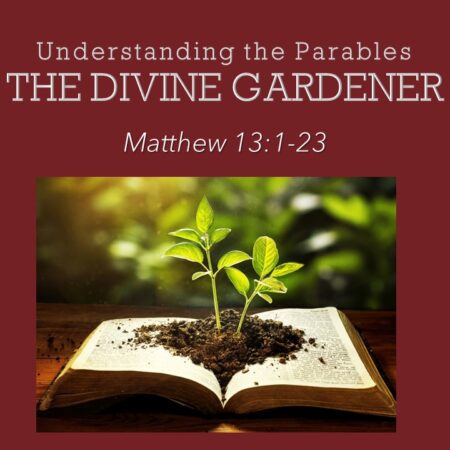Matthew 13:1-23
Romans 1:18-32
Matthew 13:20-21
Matthew 19:16-24
Luke 18:26-27
Isaiah 55:13
Revelation 22:2-3
Strauss, William; Howe, Neil (1997)
“America feels like it’s unraveling. Though we live in an era of relative peace and comfort, we have settled into a mood of pessimism about the long-term future, fearful that our superpower nation is somehow rotting from within.
The America of today feels worse, in its fundamentals, than the one many of us remember from youth, a society presided over by those of supposedly lesser consciousness.
…….Small wonder that each new election brings a new jolt, its aftermath a new disappointment. Not long ago, America was more than the sum of its parts. Now, it is less. Around World War II, we were proud as a people but modest as individuals.
Where we once thought ourselves collectively strong, we now regard ourselves as individually entitled. Yet even while we exalt our own personal growth, we realize that millions of self-actualized persons don’t add up to an actualized society. Popular trust in virtually every American institution—from businesses and governments to churches and newspapers—keeps falling to new lows. Public debts soar, the middle class shrinks, welfare dependencies deepen, and cultural arguments worsen by the year.
Optimism still attaches to self, but no longer to family or community. Most Americans express more hope for their own prospects than for their children’s—or the nation’s. Parents widely fear that the American Dream, which was there (solidly) for their parents and still there (barely) for them, will not be there for their kids. Young householders are reaching their midthirties never having known a time when America seemed to be on the right track. Middle-aged people look at their thin savings accounts and slim-to-none pensions, scoff at an illusory Social Security trust fund, and try not to dwell on what a burden their old age could become. Seniors separate into their own Leisure World, recoiling at the lost virtue of youth while trying not to think about the future. We perceive our civic challenge as some vast, insoluble Rubik’s Cube. Behind each problem lies another problem that must be solved first, and behind that lies yet another, and another.
To fix crime we have to fix the family, but before we do that we have to fix welfare, and that means fixing our budget, and that means fixing our civic spirit, but we can’t do that without fixing moral standards, and that means fixing schools and churches, and that means fixing the inner cities, and that’s impossible unless we fix crime. There’s no fulcrum on which to rest a policy lever. People of all ages sense that something huge will have to sweep across America before the gloom can be lifted—but that’s an awareness we suppress.
As a nation, we’re in deep denial. While we grope for answers, we wonder if analysis may be crowding out our intuition. Like the anxious patient who takes seventeen kinds of medicine while poring over his own CAT scan, we find it hard to stop and ask, ‘What is the underlying malady really about?’ How can we best bring the primal forces of nature to our assistance? Isn’t there a choice lying somewhere between total control and total despair?
Deep down, beneath the tangle of trend lines, we suspect that our history or biology or very humanity must have something simple and important to say to us. But we don’t know what it is. If we once did know, we have since forgotten. Wherever we’re headed, America is evolving in ways most of us don’t like or understand. Individually focused yet collectively adrift, we wonder if we’re heading toward a waterfall. Are we?”
Strauss, William; Howe, Neil (1997)
The Hebrew word for “man” is “Adam,” and it is believed to come from the Hebrew word “Adamah,” which means “dirt”, “ground” or “soil”. This is likely because the Bible states that God created man from the dust of the ground (Genesis 2:7). So, the word “Adam” is thought to be a reminder of man’s humble origins and his connection to the earth.
But there is more to this important word soil. The Latin word for soil is HUMUS, where the word Humans comes from.

